
News + Trends
Stadia: Google’s game-streaming service could revolutionise the industry
by Philipp Rüegg

Google’s upcoming game streaming service has sparked widespread discussions. Some are celebrating it as the future of gaming while others are fearing its end. Both sides have valid arguments.
Google Stadia aims to make consoles and gaming PCs obsolete by streaming games directly over the internet to your TV, notebook or smartphone. In 4K quality. This is what Google’s new streaming service is promising. Even though a lot of details such as price, game catalogue and availability are still unknown, some people are already furious. No wonder: the project could have massive effects on how we consume and produce games. Here’s an overview on the pros and cons of Stadia.
Since you made your voices heard in my previous article on this subject, I took the liberty of adding some of your comments to this one.

Nothing is known about the pricing yet, but many assume it will adopt a model similar to Netflix. Not having to buy games separately but instead trying them out for «free» will have massive repercussions on how games are programmed. This will especially impact the introduction to a game, referred to as onboard-funneling by the industry. If the beginning is too hard, boring or complicated, players will leave. You’ll have more patience with a game you paid CHF 60.– for than one you got in an all-you-can-eat model.
As with the smartphone before it, millions of new players who never owned a console or PC before will be using the service. Many fear that developers will try to appeal to the lowest common denominator, flooding the market with «cheap» games. Personally, I feel that as long as there’s demand for complex single-player games etc., there will always be a good supply of them.
Collector’s editions with an imposing statue of a dragon? This might soon be a thing of the past thanks to Stadia. The larger point is that you possibly won’t have to buy and therefore won’t own games anymore. This could mean that, as with Netflix, certain games could suddenly disappear from the store. Of course, this is already the case with Steam and Co. You don’t really own a game, just a licence to play it. This line will only become more blurred with Stadia.
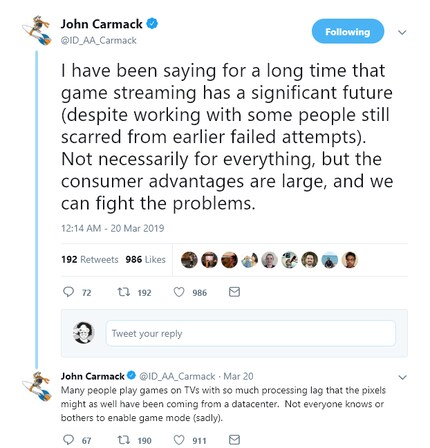
One of the biggest hurdles facing Stadia is lag. Many doubt that a game experience as smooth as on console or PC will be possible. I know that living in Switzerland gives us a huge privilege when it comes to extremely fast internet. Still, I doubt if latency will ever be so minute to satisfy even the pickiest of 144Hz gamers. Development legend John Carmack rightly noted, however, that TVs today are anything but lag-free, which doesn’t seem to annoy most gamers.

The list of products and services Google has pulled the plug on after a short amount of time is long. There’s even a website dedicated to tracking these. Do you really want to invest time and money into a service that will disappear again after two years? Will you lose your games and save states? It’s understandable why many players are hesitant. A counterargument is that Stadia doesn’t look like it’s getting quickly pushed out. All the high-profile people involved and the prestigious presentation make it seem like Google is betting big on this.

One thing that will definitely be impossible with Stadia is gaming without an internet connection. Even using unstable mobile data while commuting could be difficult. What about server errors? A large-scale server crash seems improbable for Google, but not impossible. That’ll leave you out in the cold.

Google is already collecting massive amounts of data about us through several channels. Stadia is yet another component in this. As your games run through Google’s servers, any of your input could be saved and potentially analysed by Google. Data is power. Do we really want to reveal even more about ourselves?
It’s a tradition to mod your games on PC. It starts with simple ini-tweaks to bump your frame rate or force ultra-widescreen. It’s a slippery slope, ending at gigantic game-changing mods. Time will tell if Stadia will support this. And even then, you’d have to send this data to Google to save and distribute it on their servers.
PC gamers love playing around in the settings. Stadia could remove this option in favour of a few measly options or even completely closed off settings. Not being able to select between better performance or graphics will drive many gamers up the wall.
Without physical media, archiving games will become significantly harder. Online-only titles such as «World of Warcraft» or «Destiny» are already posing a large challenge to archivers. If a game is only stored on a Google server, downloading it will also be impossible. Google is going against this, however: according to them, games will never be deleted. Instead, they will be scaled. If a game isn’t popular anymore, it’ll only be stored on one server instead of thousands. Maybe this is how games will be preserved for future players.
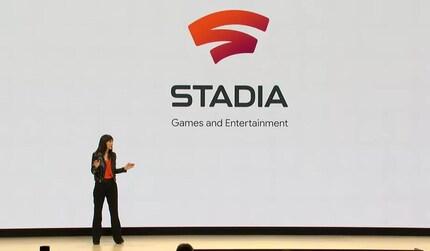
There are already many games that are only available on Switch, PS4, Xbox One or the Epic Games store. Google introduced its own studio that will only work on Stadia exclusives. Fragmentation will continue on. At least you won’t have to get an additional device.
When it comes to changes, gamers tend to be conservative. When Steam started and became nearly compulsory, gamers worldwide got out their pitchforks. Afterwards, it was a travesty that developers were starting their own stores – case in point: the Epic Games store. Copyright in games? How dare they? Raytracing? Useless. DLCs were called nothing but a rip-off. Nowadays every game has them. Always online? Not for them. This last point might be the most important when it comes to Stadia.
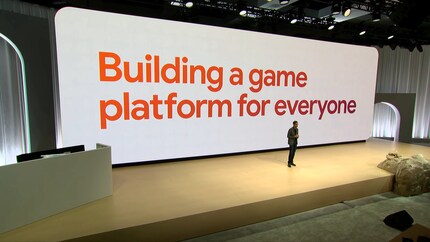
Stadia is offering a theoretically unlimited amount of computing power. Server racks could easily be attached and become more powerful than any PC or console. Developers won’t have to abide by performance limits anymore. The data limit of Blu-ray discs will also become obsolete. This power doesn’t only have to be used to pump up the graphics. It could be used to finally make AI into something actually resembling artificial intelligence.
Compatibility won’t be an issue for Stadia, neither on consoles nor on PC. Developers will only have to work with one type of hardware. This simplifies their work and lowers costs. As most developers will continue making games for PC, PS4 and co., however, their efforts will have to increase at the beginning.
No matter where or on which device you are, Stadia offers more flexibility than any known game system (except for offline play). You can start a game and switch between devices in seconds. You won’t need to remember where you put your console or if you want to lug your notebook around with you. Stadia will be playable from hotel TVs to tablets.
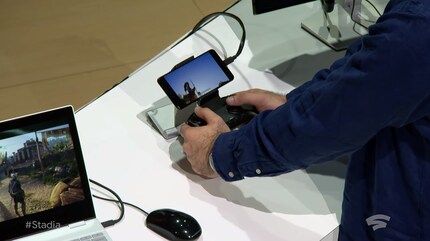
90 million sold PS4s sounds like a lot. Billions of people the world over still don’t own a console or gaming PC. Most of them do have a smartphone or a weak notebook, however. As long as internet speeds hold up, Stadia could grow exponentially. More players mean more profit, which in turn means more (potentially good) games. Making games available to more people is something nice in itself.
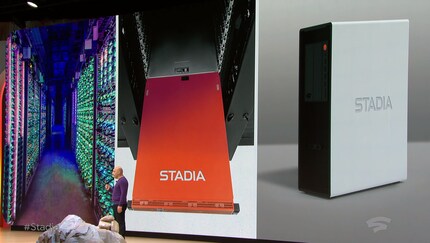
No matter if you have an iPhone, Windows PC or a Samsung Smart TV, you will be able to play with anyone. Any device with Chrome (to be followed by any chromium-based browser) or Chromecast will be able to run Stadia. In addition, Google has announced they are supportingossplay. If developers allow it, players on PS4, PC and Stadia could play together.
The days of expensive hardware are over. You won’t have to upgrade your Pc anymore to benefit from new technologies such as raytracing. And your console won’t have to work and wheeze to reach 4K resolution. This is what makes Stadia worth it, in my opinion.

For developers, the opportunity to develop directly on Stadia is enticing. Studios won’t have to invest in expensive PCs for their employees anymore, but will get their processing power from Stadia.
Games will always be up to date on Stadia. You won’t have to download a 90 GB patch before playing ever again. On top of this, loading times before as well as during gameplay should be drastically shorter. Google is touting five seconds from start up to play. Currently, this duration won’t even show you the developer’s logo.
Let’s leave the performance aside until we can actually test it. What do you think: is Stadia a godsend or the spawn of Satan?
As a child, I wasn't allowed to have any consoles. It was only with the arrival of the family's 486 PC that the magical world of gaming opened up to me. Today, I'm overcompensating accordingly. Only a lack of time and money prevents me from trying out every game there is and decorating my shelf with rare retro consoles.
Interesting facts about products, behind-the-scenes looks at manufacturers and deep-dives on interesting people.
Show all